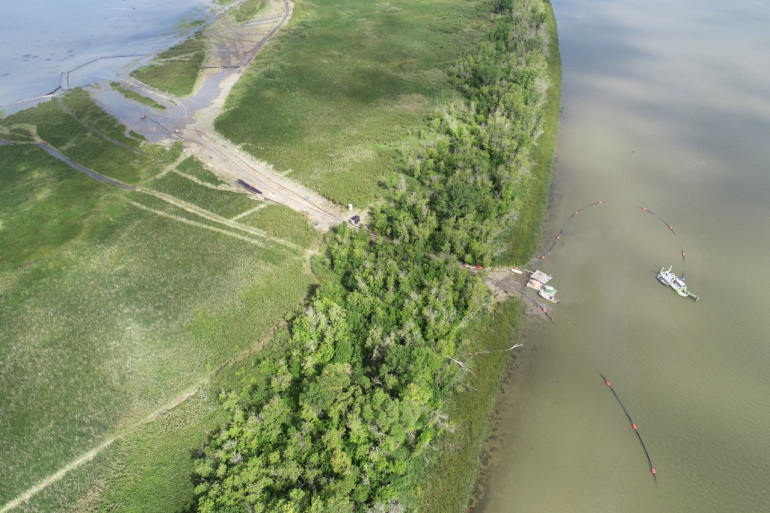The Manitoba government has awarded $1 million in grants from the Conservation and Climate Fund to nine organizations for green projects throughout the province. The Red River Basin Commission received $150,000 to continue the Netley Marsh revitalization project south of Lake Winnipeg.
Steve Strang, Manitoba Director for the Commission, says they wanted to partner with the province from the get go.
“We're really grateful for the support that is coming from the province. This year we were on the marsh and we did commence with the project. But unfortunately, due to restraints, we weren't able to get it one hundred per cent complete. But with this gift, now that has come from [Conservation and Climate Minister Sarah Guillemard] through the province, we're able to do that and get back in next year"
According to the project's website, Netley Marsh, the largest freshwater coastal wetland in North America, has been deteriorating for numerous reasons, to the point where it is no longer a healthy functioning marsh. Strang says the end goal of the Netley Project is simple.
“The Netley Marsh has changed from what we call a hemi-marsh, which is half water and half vegetation, to basically a very shallow muddy lake. The simplicity of fixing this is baring the bottom of the marsh so that the seed base within that mucky bottom of the marsh begins to grow," he explained. "Between our pilot project and what we're seeing happening naturally with Mother Nature, it's given us proof of concept which should allow us to carry forward.”
Strang adds, Netley Marsh is vital to a healthy Lake Winnipeg.
“The Marsh acts, first of all, as the kidneys of the lake. A portion of the Red River which is nutrient rich contributes almost 70% of the nutrient load going in the Lake Winnipeg. That's why we see all these algae blooms and it's very concerning . It just affects so much. So, less phosphates in the water means less algae blooms which means a healthier lake Winnipeg.”
The Netley project has the backing of many other organizations which support one of the stronger tools available to help preserve the lake for future generations. That group includes University of Manitoba, Lake Winnipeg Foundation, International Institute for Sustainable Development, Ducks Unlimited, Peguis First Nation, Brokenhead Ojibway Nation, Sagkeeng First Nation, Southern Chiefs Organization and South Basin Mayors and Reeves.
“The prairies have lost anywhere up to seventy per cent, and in some areas, as much as ninety per cent of our wetlands,” explains Strang. “We all have to play a role in helping protect [our wetlands]. It can mean utilizing dish soaps that have less detergents. It's about leaving some of your lands that are really really low and leave them to go back to wetlands. If we were to consider flood mitigation for the purpose of drought mitigation where we could utilize that water that's being held onto the land for future irrigation, everybody becomes a winner.”
In a news release announcing the provincial funding, Guillemard says, “Manitoba continues to take important steps to restart our economy and create jobs, and our government is committed to supporting environmentally responsible initiatives. These projects support a cleaner environment, climate adaptation and low-carbon economic growth.”


















